detail profile luiz carlos lacerda

Luiz Carlos Lacerda
Luís Carlos Lacerda
atau dikenal sebagai
Riwayat Hidup
Luiz Carlos Lacerda de Freitas (Rio de Janeiro, July 15, 1945) is a Brazilian film director known for For All: Springboard to Victory (1997), Leila Diniz (1987) and O Princípio do Prazer (1979).
Info Pribadi
Peran Yang Di Mainkan Luiz Carlos Lacerda
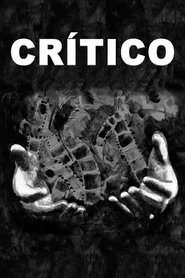 Seventy critics and filmmakers discuss cinema...
Seventy critics and filmmakers discuss cinema...Critic 2008
Seventy critics and filmmakers discuss cinema around the conflict between the artist and the observer, the creator and the critic. Between 1998 and 2007, Kléber Mendonça Filho recorded testimonies about this relationship in Brazil, the United States and Europe, based on his experience as a critic.
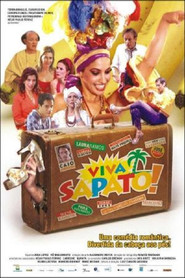 A lighthearted and highspirited story full...
A lighthearted and highspirited story full...Viva Sapato! 2003
A light-hearted and high-spirited story, full of spice, sensuality and romance, Viva Zapato tells the tale of Dolores, a beautiful Cuban dancer who decides to leave her failing marriage and open a restaurant by the beach with her aunt from Brazil. When her aunt sends her a pair of shoes instead of the money to start up the restaurant, she angrily sells the useless gift for spare change. Her dream fades away - until she discovers that the money was hidden in the heel. The zany search for the shoes begins, as she follows the footsteps through the lively streets of Havana, running into the quirky, colorful characters that bring Viva Zapato and Dolores' dream.
 After being fired from his job...
After being fired from his job...Minha Vida Em Suas Mãos 2001
After being fired from his job and have his unemployment insurance money robbed, a young man decides to become a robber himself. While escaping authorities, he meets a female teacher of whom he takes hostage. Things get complicated when they fall in love with each other.
 1943 World War II The northeastern coast...
1943 World War II The northeastern coast...For All - O Trampolim da Vitória 1998
1943, World War II. The northeastern coast of Brazil is an strategic region for the Allies. Giancarlo, an Italian immigrant married to a Brazilian woman, lives nearby the Parnamirin Field, the largest military base built by the USA outside of their territory. In this new base, Brazilian recruits who speak English suddenly find themselves reaching privileged positions.
 Documentary that addresses through the testimony...
Documentary that addresses through the testimony...Dib 1997
Documentary that addresses, through the testimony of directors and actors, the work of Dib Lutfi, considered one of the greatest photographers of Brazilian cinema.
 In 1970 the Esquadro da Morte Death...
In 1970 the Esquadro da Morte Death...República dos Assassinos 1979
In 1970, the Esquadrão da Morte (Death Squad)' crimes for the refinement of violence provoked a wave of reactions throughout the country. The photos of the victims, adorned by the skull, symbol of the group, caused an uncomfortable indignation. This is the story of Mateus Romeiro, the most famous of the policemen, who was part of the Homens de Aço (Steelmen) group, one of the factions in which the squadron was divided.
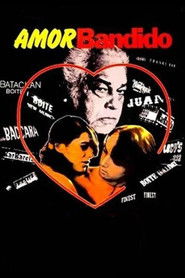 Police investigator Galvo is pursuing two...
Police investigator Galvo is pursuing two...Outlaw Love 1979
Police investigator Galvão is pursuing two trails, one professional and one personal. While he looks for a serial killer, he also searches for his estranged daughter, Sandra, whom he kicked out of the house. Lives intersect when the serial killer, Toninho, befriends Sandra, now an exotic dancer and prostitute living and working in the seamy underside of late 1970s Rio.
 Tadeu a poor lad from the...
Tadeu a poor lad from the...The Rich Are Something Else 1977
Tadeu, a poor lad from the Northeast of Brazil, comes to Rio de Janeiro to try his luck. His good looks and education win him the favor of rich people. In his spare time, he becomes the favorite among lonely and rich ladies. Soon he gets involved in trouble.
 Brazil 1594 The Tupinambs natives are friends...
Brazil 1594 The Tupinambs natives are friends...How Tasty Was My Little Frenchman 1971
Brazil, 1594. The Tupinambás natives are friends of the French and their enemies are the Tupiniquins, friends of the Portuguese. A Frenchman is captured by the Tupinambás, and in spite of his trial to convince them that he is French, they believe he is Portuguese. The Frenchman becomes their slave, and maritally lives with Seboipepe.
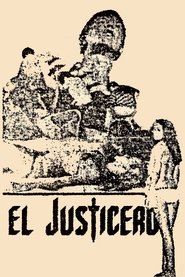 A shockingly irreverent followup to the...
A shockingly irreverent followup to the...El Justicero 1967
A shockingly irreverent follow-up to the rural austerity of Barren Lives, dos Santos’ Godardian social satire owes more than a nod to the self-conscious antics of the French New Wave. The pampered son of a general, El Justicero is a hipster playboy who fancies himself a James Bond/Jean Paul Sartre urban hero. “Archetypical” yet “full of contradictions,” he sees that justice is achieved for the disadvantaged while taking advantage of certain bourgeois perks. His exploits are closely followed and eventually directed by his biographer who decides a film is not only more lucrative than a book, but it gives him the luxury of reviewing previous scenes. Unlike Bond, El Jus eventually experiences an awakening which threatens to compromise the entertainment value and glamour of his life story. - Harvard Film Archive
 The life of Brazilian actress Leila...
The life of Brazilian actress Leila...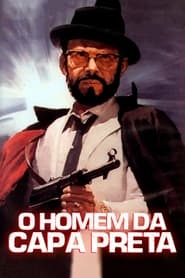 Biography of Brazilian congressman Tenrio Cavalcanti...
Biography of Brazilian congressman Tenrio Cavalcanti... Enterprising youths live many adventures when...
Enterprising youths live many adventures when...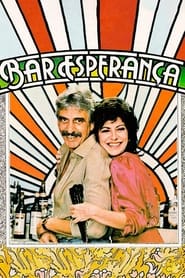 A group of eccentric people gather...
A group of eccentric people gather... Biography of a Brazilian dancer who...
Biography of a Brazilian dancer who... After the collapse of their relationships...
After the collapse of their relationships...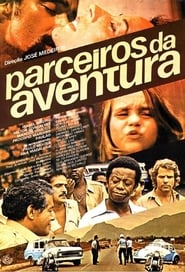 Rio de Janeiro crooks rove about...
Rio de Janeiro crooks rove about...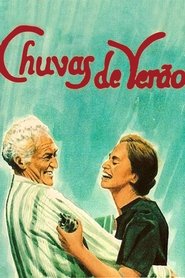 70yearold widower living in a poor...
70yearold widower living in a poor... In a small town in the...
In a small town in the...